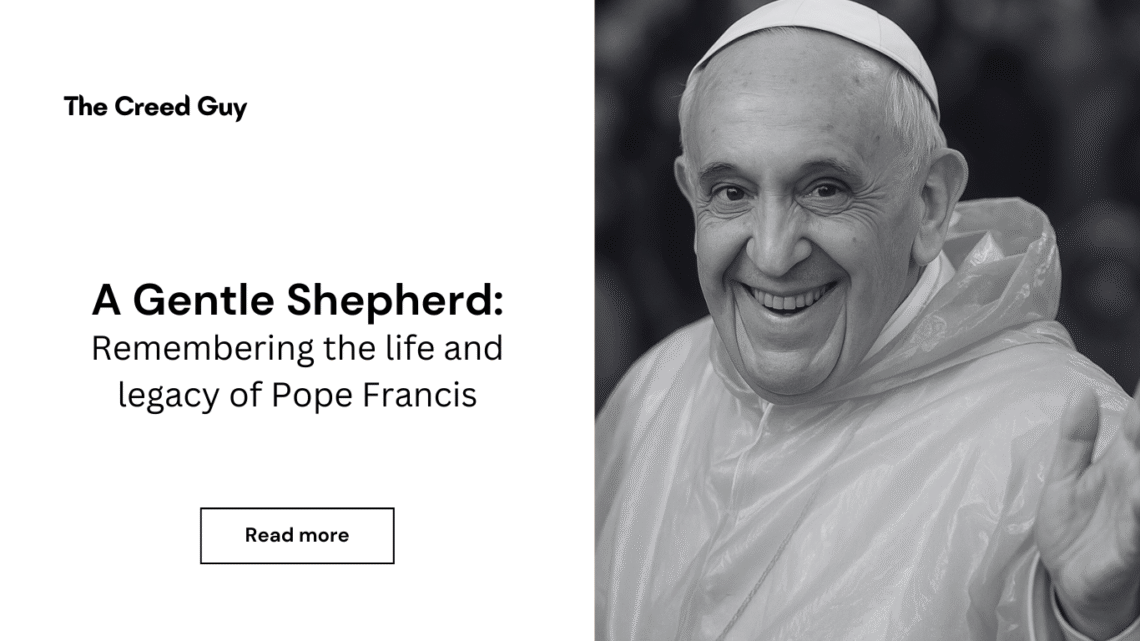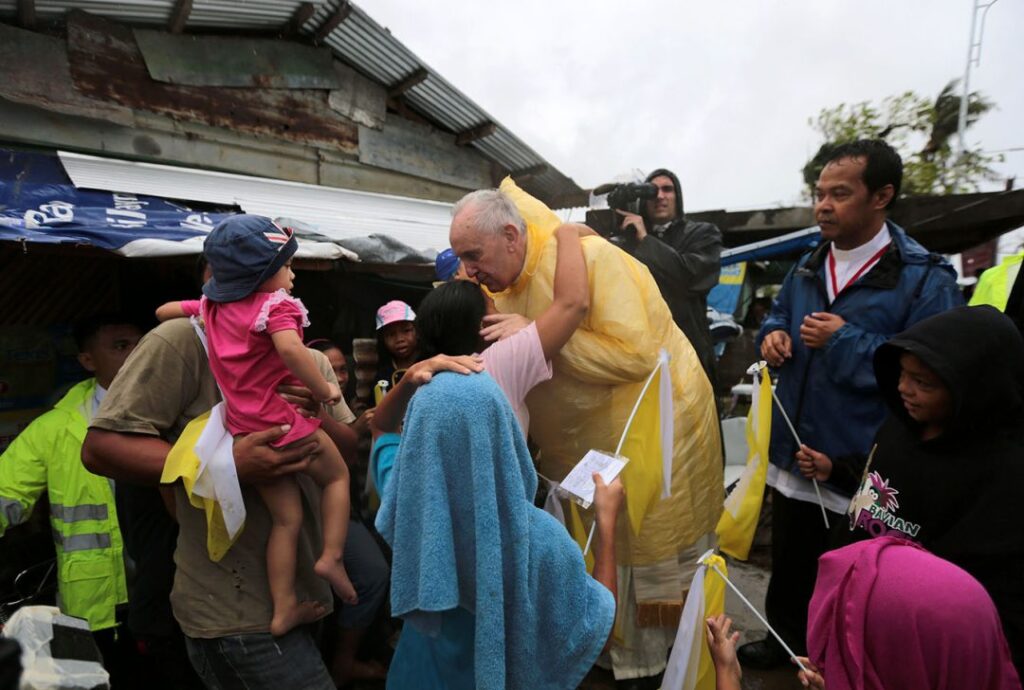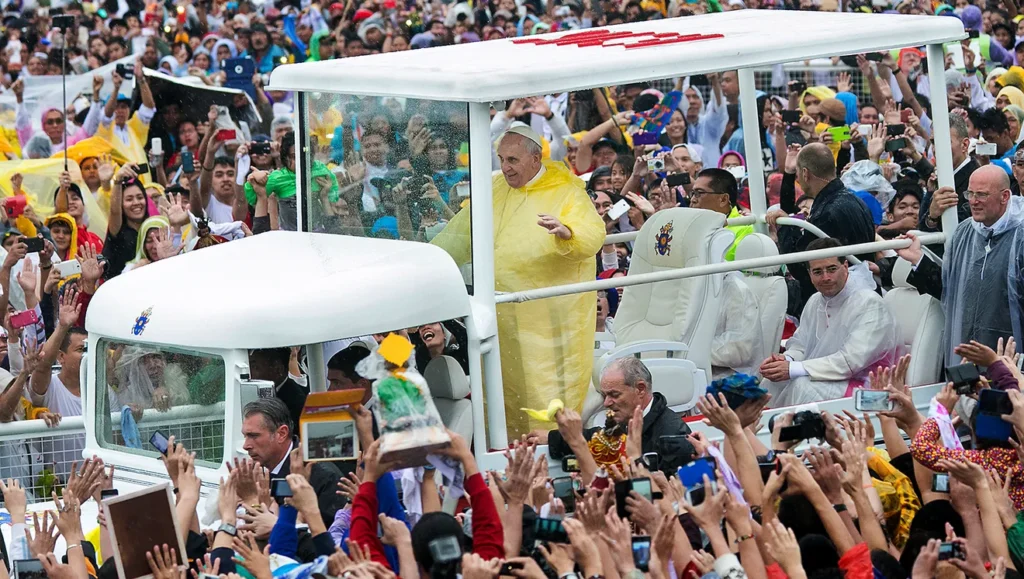
A Gentle Shepherd: Remembering the Life and Legacy of Pope Francis
I woke up today to the news that felt like a quiet wind passing through the soul—a deep, reflective kind of silence. Pope Francis has passed away. Even as I write this, there’s a lump in my throat I can’t quite explain. For many of us—Catholic or not—Pope Francis was more than just the leader of the Roman Catholic Church. He was a presence, a voice of compassion, a reminder that faith can still be tender in a world that often forgets how.
From Buenos Aires to the Vatican: A Humble Beginning
Born Jorge Mario Bergoglio in Buenos Aires, Argentina, in 1936, Pope Francis was never one to chase titles or positions. He grew up in a working-class family, the son of Italian immigrants, and lived a life so relatable that it made his ascent to the papacy even more remarkable. Before entering the seminary, he worked as a janitor and a chemical technician. Imagine that—before the world came to know him in the grand halls of St. Peter’s Basilica, he was sweeping floors and helping with everyday tasks. It’s a reminder that holiness is often born in humility.
His path to priesthood wasn’t always a straight line. He discerned his vocation in his early 20s after recovering from a life-threatening illness. That brush with mortality only deepened his faith, and in 1958, he entered the Jesuit novitiate. As a Jesuit, he embraced a life of simplicity, community, and mission—a kind of “boots-on-the-ground” faith that valued presence over power.
The People’s Pope
When he was elected as Pope in 2013, following the resignation of Pope Benedict XVI, Jorge Mario Bergoglio became the first Jesuit pope, the first from the Americas, and the first to take the name Francis—inspired by St. Francis of Assisi, the saint of peace, humility, and care for creation. And from the very start, you could tell: this pope was different.
I still remember the moment he stepped out onto the balcony of St. Peter’s Basilica for the first time. He didn’t wave like a celebrity. He bowed his head and asked the people to pray for him. Hindi siya nagpasikat. Hindi siya nagpaka-bida. That moment struck something deep in me. In that simple gesture, he became a symbol of a Church that listens, a Church that walks with the people rather than stands above them.
His Visit to the Philippines: Mercy in the Midst of Storms
Of all his travels, his 2015 visit to the Philippines holds a special place in our hearts. I remember watching the live coverage, eyes glued to the screen, heart swelling with pride and awe. His presence brought light after the darkness left by Typhoon Yolanda. In Tacloban, standing under pouring rain, in a simple yellow raincoat, Pope Francis offered Mass and spoke from the heart. No grand speeches—just raw, sincere emotion. He said he came to be with us, to listen to our pain, and to pray for our healing.


He didn’t just talk about mercy—he embodied it.
That visit wasn’t just a papal itinerary; it was a pilgrimage of love. Nakita natin ang puso ng isang tunay na Ama—lalong-lalo na nung niyakap niya yung mga batang nagtanong, “Why do children suffer?” He had no textbook answer. Just silence, tears, and presence. That moment reminded us that sometimes, the most powerful form of ministry is to simply be there.
His Legacy: Kindness as Strength
Throughout his papacy, Pope Francis reminded us again and again that kindness is not weakness. He challenged the Church to be more inclusive, more loving, more aware of the poor, the migrant, the forgotten. He spoke out about climate change, inequality, war, and injustice—not in political tones, but with the moral weight of a shepherd who cares deeply about his flock.
He pushed boundaries, not for the sake of controversy, but out of love. He reminded us that religion without compassion is hollow. That faith is most beautiful when it’s lived, not just preached.
He wasn’t perfect, and he knew that. He never tried to be a flawless saint. He was simply a man who walked with God and wanted to bring others along that walk.
Goodbye, Lolo Kiko
And now, he’s gone.
For many Filipinos, he wasn’t just the Pope—he was Lolo Kiko. The kind grandfather figure who smiled with his eyes, who laughed with children, who walked gently yet spoke with courage. His passing feels like the loss of someone close to home, someone who helped make our spiritual world feel warmer and more human.
Today, the bells may toll solemnly, but I imagine him arriving in Heaven not with trumpets, but with open arms from the One he served so faithfully. I imagine St. Francis greeting him with a smile, the two of them walking together—barefoot, gentle, joyful.
And I imagine the quiet echo of his words: “Who am I to judge?”—a phrase that cracked open centuries of rigid judgment and reminded us of the heart of the Gospel.
Rest in peace, dear Pope Francis. Thank you for walking with us. You showed us that holiness looks a lot like humility, and that the heart of the Church beats loudest when it beats for love.
Related article:
You May Also Like

Jollibee Group and Coca-Cola collaborate to create a refreshing future for everyone
August 17, 2023
Unlock life essentials with Globe Rewards this summer
March 24, 2023
